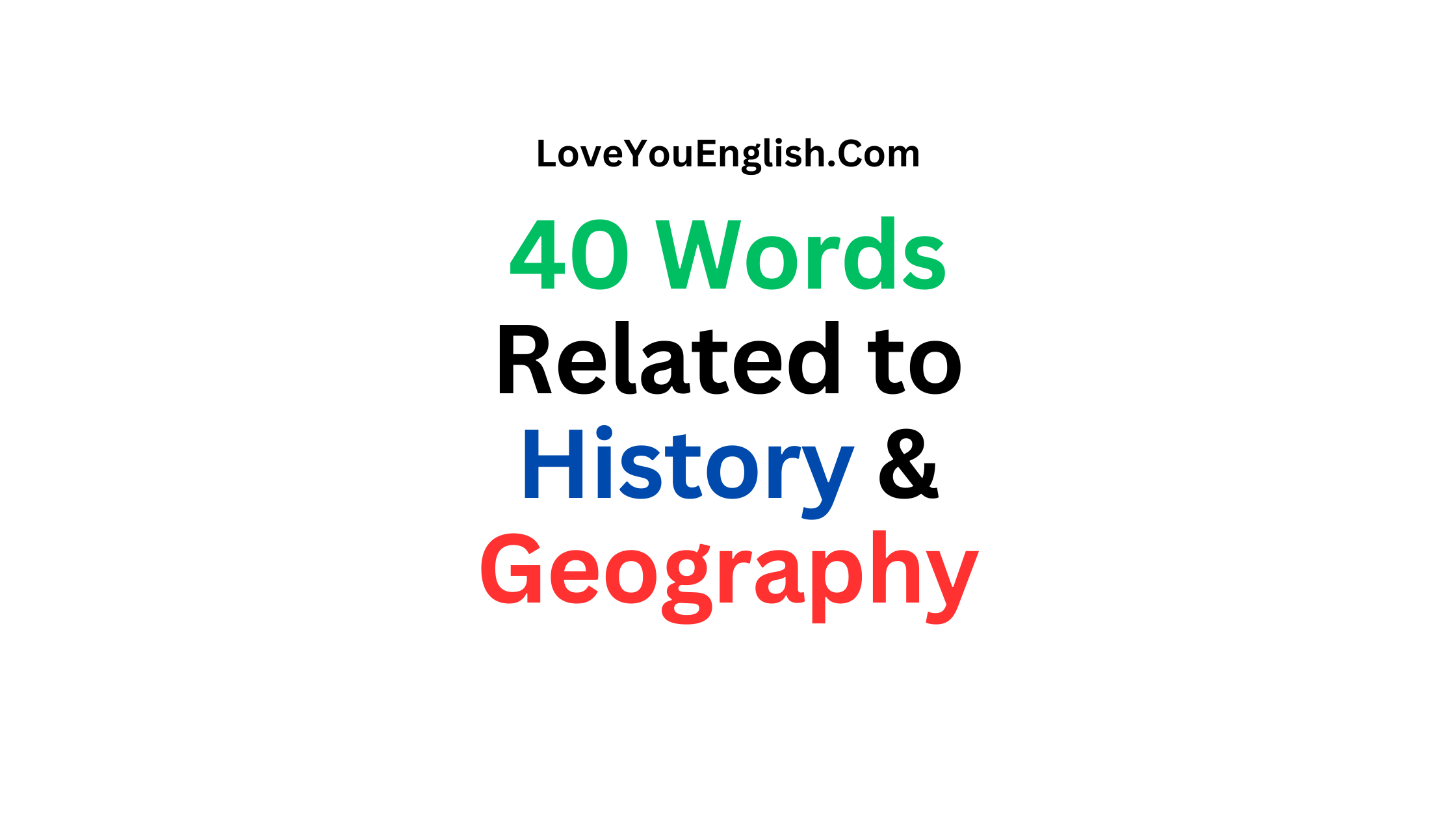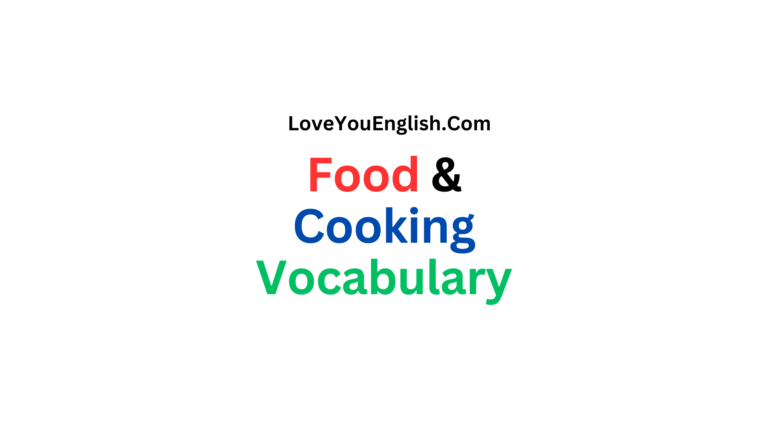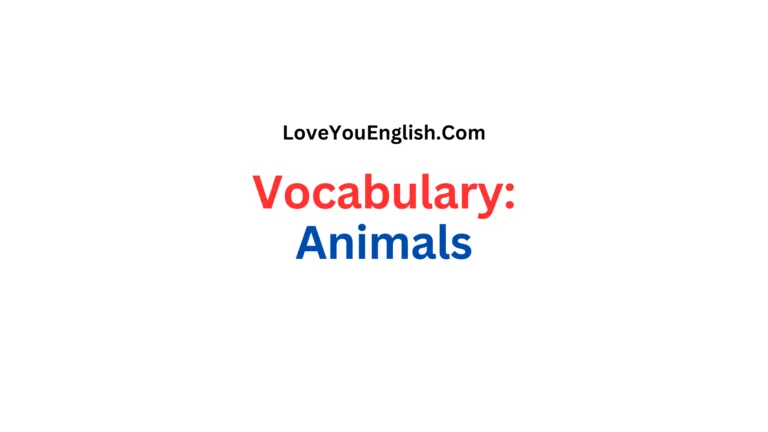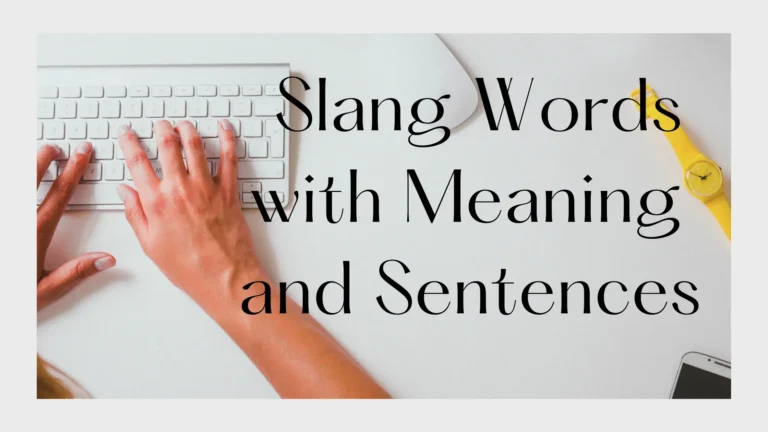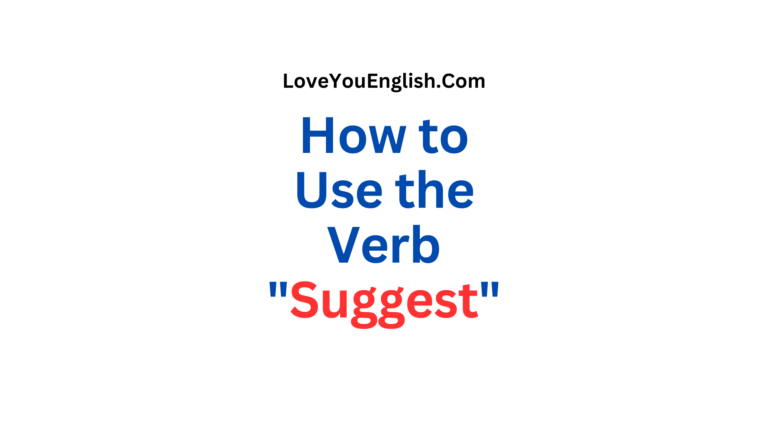40 Words Related to History and Geography
40 Words Related to History and Geography, with Their Meanings
History
Civilization – A complex society with cities, government, and culture.
Example: Ancient Egypt was one of the earliest civilizations.
Empire – A group of countries or territories controlled by one ruler or government.
Example: The Roman Empire was vast and influential.
Dynasty – A series of rulers from the same family.
Example: The Ming Dynasty ruled China from the 14th to the 17th century.
Revolution – A sudden and significant change in government or society.
Example: The American Revolution led to the creation of the United States.
Artifact – An object made by humans from the past.
Example: Ancient pottery is a common artifact found in archaeological digs.
Colonization – The process of establishing control over a new area.
Example: European colonization of the Americas began in the 15th century.
Pharaoh – A ruler of ancient Egypt.
Example: Tutankhamun was a famous pharaoh known for his well-preserved tomb.
Medieval – Relating to the Middle Ages in Europe, roughly 500-1500 AD.
Example: Castles were a common feature of medieval Europe.
Empire – A large territory or group of nations ruled by one leader or government.
Example: The British Empire was one of the largest in history.
Expand vocabulary:
- Advanced English Verbs for Total Fluency
- Advanced Adjectives for Describing People
- 5 English slang terms you need to know in 2024
- How to Expand Your English Vocabulary Fast
- 29 Slang Words You Need to Know
Rebellion – A fight against the established authority.
Example: The Spartacus Rebellion was a significant uprising in ancient Rome.
Invasion – An instance of entering a country or region to conquer it.
Example: The Norman Invasion of England in 1066 changed the course of British history.
Diplomacy – Managing international relations and negotiations.
Example: Treaties are often the result of diplomacy between countries.
Chronology – The arrangement of events in the order they happened.
Example: Understanding chronology helps historians piece together the past.
Ancient – Relating to a long time ago, especially before the Middle Ages.
Example: Ancient Greece was known for its philosophers and mythology.
Monarchy – A form of government led by a king or queen.
Example: The United Kingdom is a constitutional monarchy with a royal family.
Historical – Pertaining to events of the past.
Example: Historical records provide insights into past civilizations.
Sovereignty – The authority of a state to govern itself.
Example: Nations seek sovereignty to make their own laws and decisions.
Chronicle – A detailed and factual account of events.
Example: The Chronicles of Narnia are famous fictional chronicles.
Conquest – The act of taking control of a place or people by force.
Example: The Spanish Conquest of the Aztec Empire was a significant historical event.
Renaissance – A period of cultural revival in Europe from the 14th to the 17th century.
Example: The Renaissance saw advancements in art, science, and literature.
Geography
Continent – A large continuous mass of land.
Example: Africa is the second-largest continent on Earth.
Latitude – Lines running parallel to the Equator, measuring north or south.
Example: The Equator is at 0° latitude.
Longitude – Lines running from the North to South Poles, measuring east or west.
Example: The Prime Meridian is at 0° longitude.
Peninsula – A landmass surrounded by water on three sides.
Example: The Iberian Peninsula includes Spain and Portugal.
Desert – A dry, barren area with very little rainfall.
Example: The Sahara Desert is the largest hot desert in the world.
Mountain Range – A series of connected mountains.
Example: The Himalayas include some of the world’s highest peaks.
Island – A landmass completely surrounded by water.
Example: Madagascar is a large island off the southeastern coast of Africa.
River – A natural watercourse flowing towards an ocean, sea, or lake.
Example: The Nile River is the longest river in Africa.
Volcano – A mountain with an opening that allows molten rock to escape.
Example: Mount Vesuvius famously erupted in AD 79.
Glacier – A large, slow-moving mass of ice.
Example: The Greenland Ice Sheet is a major glacier.
Archipelago – A group of islands.
Example: The Indonesian Archipelago consists of thousands of islands.
Geyser – A hot spring that periodically erupts with a burst of water and steam.
Example: Old Faithful is a famous geyser in Yellowstone National Park.
Plateau – A flat elevated area of land.
Example: The Colorado Plateau includes the Grand Canyon.
Bay – A broad inlet of the sea where the land curves inward.
Example: San Francisco Bay is a prominent example.
Canyon – A deep ravine between cliffs often carved by a river.
Example: The Grand Canyon is one of the most famous canyons in the world.
Tundra – A cold, treeless region where the subsoil is permanently frozen.
Example: The Arctic Tundra is known for its extreme conditions.
Savanna – A grassy plain with few trees, typically in tropical regions.
Example: The African Savanna is home to diverse wildlife.
Estuary – Where a river meets the sea, mixing fresh and saltwater.
Example: The Thames Estuary is where the River Thames flows into the North Sea.
Delta – A landform where a river splits into several smaller streams before entering a larger body of water.
Example: The Nile Delta is one of the world’s most famous deltas.
Globe – A spherical representation of Earth.
Example: A globe helps visualize the planet’s geography.
I hope you find these terms interesting and helpful for your study of history and geography! 🌍
Here are some effective ways to remember new words:
Use the word in context: Write sentences using the new word.
Visualize: Create a mental image associated with the word.
Mnemonics: Use memory tricks like acronyms or rhymes.
Repetition: Review the word regularly over time.
Group words: Organize related words together.
Word association: Link the new word to one you already know.
Write it down: The act of writing helps reinforce memory.
Teach others: Explaining the word to someone else solidifies your understanding.
Use flashcards: Test yourself regularly.
Learn word roots, prefixes, and suffixes: Understanding word parts can help you guess meanings.
Use the word in conversation: Practical application aids retention.
Create a story: Weave new words into a memorable narrative.
_________________________
Check out these awesome vocabulary books I recommend:
1500 VOCABULARY FLASH CARDS + ONLINE for GRE GMAT TOEFL SAT IELTS CAT
10 Minutes A Day Vocabulary, Ages 7-11 (Key Stage 2)
English Vocabulary In Use: Pre – Intermediate And Intermediate With CD

